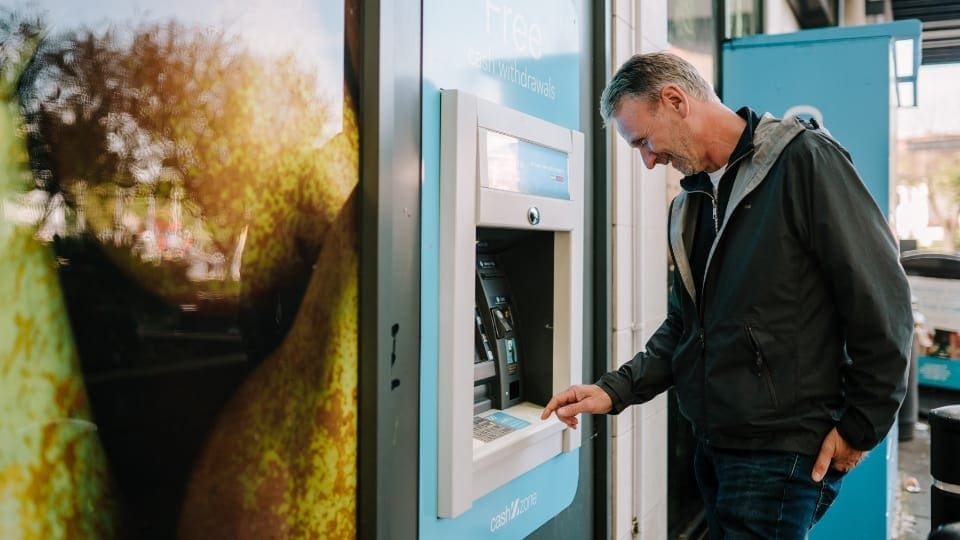
Pamela’s story
When Pamela applied for NHS continuing healthcare for her husband Rob, she felt the odds were stacked against them from the outset.

A diagnosis of young onset dementia may come at a time in life when you are working and have significant financial obligations such as a mortgage, credit card bills and loans. You may also have children who are still financially dependent.
Read more about how to manage financial and legal matters now and in the future.
Some people with young onset dementia continue in employment with adjustments to their workplace or role, but others may stop work sooner than they had planned.
You may choose to reduce your hours, change your role or stop work completely if you care for someone who has young onset dementia.
Dementia is classified in England, Wales and Scotland as a disability in the Equality Act 2010, and in the Disability Discrimination Act 1995 in Northern Ireland. This means a person with a dementia diagnosis has legal protection from discrimination at work.
Some people with young onset dementia choose to take early retirement and start drawing their pension. But accessing your pension early may affect your income or what benefits you are entitled to.
Seek professional advice when weighing up your pension options. For more information, visit gov.uk, or to find an independent pensions adviser, visit unbiased.co.uk or thepfs.org.
If you have to stop work before you reach the State Pension age, you can protect your pension entitlement with National Insurance credits.
If you have a diagnosis of young onset dementia or care for someone who does, you may be eligible for benefits, particularly if you are no longer able to work. These include:
Use a benefits calculator to find out which benefits you or the person you support might be entitled.
Appointeeship
If you care for someone who needs assistance with applying for or managing benefits, you can apply to the Department for Work and Pensions to become their appointee. This allows you to manage their benefits for them.
It can be difficult to manage your finances, especially if your income suddenly drops. In addition, dementia sometimes changes the way people behave with money – for example, they may gamble, spend impulsively, purchase items that are not needed or become vulnerable to scams.
These suggestions may help you:
If you do not feel able to manage your finances, ask someone you trust to help or consider getting professional advice as soon as possible. Do not ignore letters if you get into difficulties. Seek advice from a qualified financial adviser who is regulated and authorised by the Financial Conduct Authority.
Lasting power of attorney
Lasting power of attorney (LPA) is a legal process where you appoint someone (known as your ‘attorney’) to make decisions for you if you lack the mental capacity to do so yourself.
There are two types, and you can make either or both:
After a diagnosis of young onset dementia, it is advisable to make an LPA as soon as possible.
You can set up an LPA yourself using an online form. Alternatively, you can ask a solicitor to set it up for you.
Deputyship under the Court of Protection
If you care for someone with dementia who lacks the mental capacity to make decisions for themselves, but you do not have LPA, the Court of Protection may appoint you as the person’s ‘deputy’ and give you permission to make one-off or ongoing decisions on their behalf.
You can be a deputy for matters relating to:
A Will ensures that your money and possessions are left to the people or charities of your choosing after your death, and every adult should have one. If you don’t have a Will and have been diagnosed with dementia, you should make one as soon as possible.
Although you can write your own Will, it is recommended that you seek legal advice from a solicitor or Will writer to make sure your wishes are interpreted in the way you want.
If you already have a Will and have been diagnosed with dementia, it is advisable to review it to make sure it reflects the changes in your circumstances and your current wishes.
To speak to a specialist dementia nurse about any aspect of dementia, please call our free Dementia Helpline on 0800 888 6678 (Monday-Friday 9am-9pm, Saturday and Sunday 9am-5pm, every day except 25th December or email helpline@dementiauk.org
If you prefer, you can book a phone or video appointment with a specialist dementia nurse in our virtual clinics.
Our virtual clinics give you the chance to discuss any questions or concerns about dementia, including young onset dementia, with a dementia specialist Admiral Nurse by phone or video call, at a time that suits you.

When Pamela applied for NHS continuing healthcare for her husband Rob, she felt the odds were stacked against them from the outset.

When Elliott’s father was diagnosed with young onset Alzheimer’s disease in his fifties, family life was changed forever.

Glenn shares how flexible working arrangements and support from his managers enables him to continue working whilst prioritising his wife Helen's care.